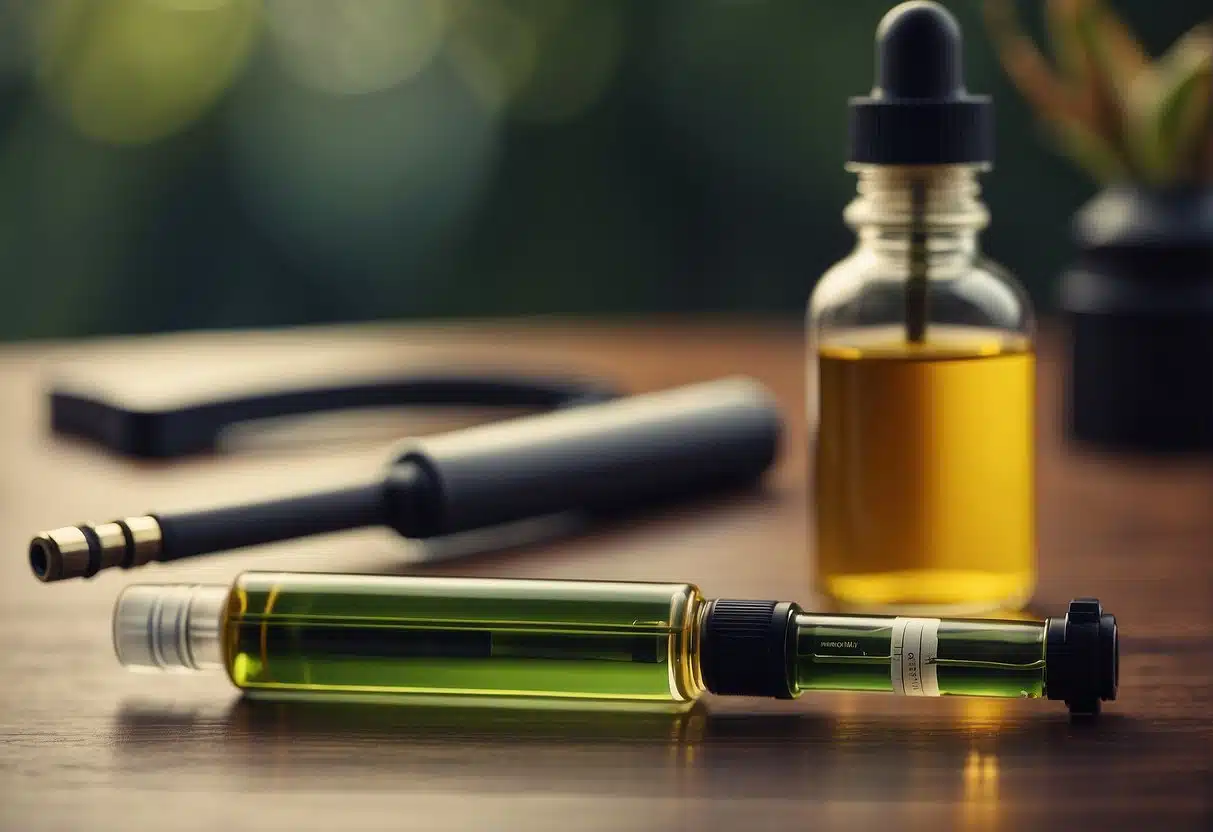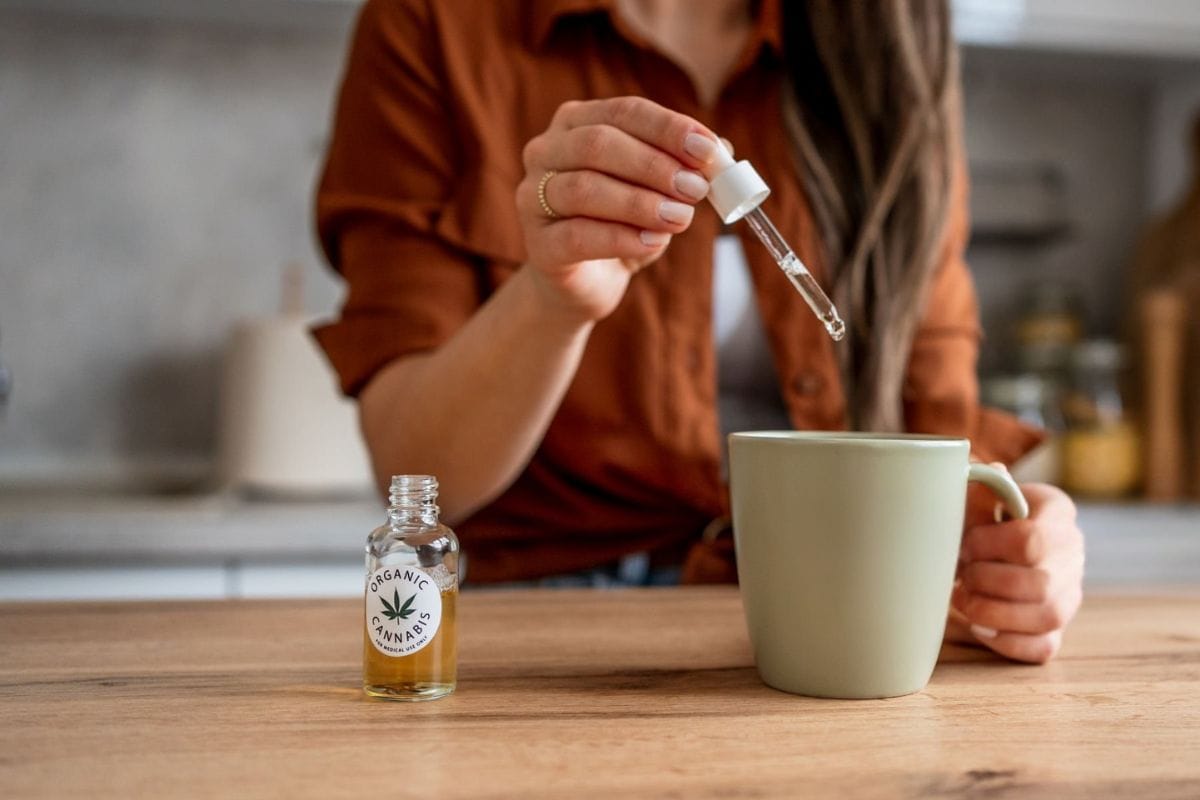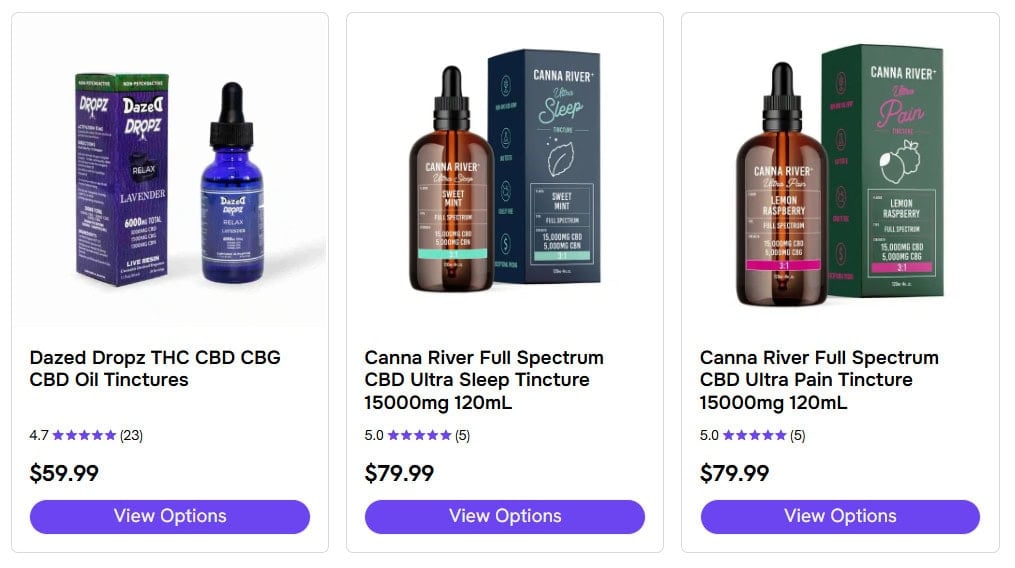Can You Eat THC Vape Oil: Safety and Effects Explained
Curious about cannabis? THC vape oil might have you scratching your head—what’s it really about, and how safe is it? This powerful elixir lights up in vape pens and e-cigs, delivering a fast track to euphoria. But remember, it’s designed for inhaling, not eating. When heated, vape oil turns into a mist meant to be inhaled, not swallowed. Thinking of tasting it? Better not.
Eating THC Oil from Cart:
- Understanding THC Vape Oil
- Can You Eat THC Vape Oil?
- Effects and Efficacy
- Legal Considerations
- Consumption Methods
- Extraction and Production
- Health Risks and Precautions
- Usage and Dosage
- Differentiating Vape Oils
- Consumer Guidance
- Frequently Asked Questions
- Is it safe to ingest THC vape oil directly?
- What are the potential risks associated with consuming THC vape oil?
- How does ingesting THC vape oil compare to vaping in terms of health effects?
- Can THC vape oil be incorporated into homemade edibles?
- Are there any specific considerations when using THC oil from a cartridge for oral consumption?
- What is the proper dosage when using THC vape oil for edible preparations?
If you’re considering eating THC oil from cart, it’s important to understand that it differs significantly from cannabis edibles. Edible forms of cannabis, such as gummies, brownies, or capsules, are formulated for digestion and have undergone a decarboxylation process that activates the THC. Edibles are also made with ingredients safe for the digestive system. Vape oils, on the other hand, may contain thinning agents, flavorings, and other additives that aren’t intended for the stomach and could potentially cause harm if ingested.
Understanding THC Vape Oil
When considering the use of THC vape oil, it’s crucial to grasp its composition, the different types available, how vaping compares to smoking, and the safety concerns associated with its use.
Composition of THC Oil
THC vape oil, frequently known as cannabis oil, is a concentrated form of cannabinoids extracted from the cannabis plant. Typically, these oils contain a mixture of THC (tetrahydrocannabinol) and CBD (cannabidiol), along with other cannabinoids. The base of the oil usually consists of substances like propylene glycol (PG) and vegetable glycerin (VG) which are used to create the vapor when heated. Additionally, these oils may contain terpenes, which contribute to the aroma and flavor of the cannabis plant.
Types of THC Concentrates
Concentrates come in various forms, including wax, shatter, kief, and oil, with diverse consistencies all utilized for vaping. Budtenders at dispensaries can help guide you through the choices of cannabis concentrates. Wax has a sticky texture, while shatter is hard and brittle. Kief is a collection of trichomes that have been separated from the plant material, often found at the bottom of a grinder.
Vaping vs. Smoking
The act of vaping involves inhaling vapor produced by heating THC oil in a device like a vape pen or e-cigarette. Vaping is distinct from smoking, which burns the cannabis bud to produce smoke. Vaporizers operate at lower temperatures than combustion, potentially reducing the intake of harmful substances like carcinogens known to be present in smoke.
Safety Profile
There are safety concerns regarding THC vaping related to the risk of lung injury and the presence of toxic substances. Additives such as vitamin E acetate have been implicated in EVALI (e-cigarette, or vaping, product use-associated lung injury), a serious condition leading to severe lung injury and even deaths. It is important to use products from reputable sources that have been tested for contaminants. The FDA has issued warnings regarding the risks associated with vaping, emphasizing the potential for serious side effects.
Can You Eat THC Vape Oil?
| Aspect | Explanation |
|---|---|
| Direct Consumption | No – THC vape oil is not designed to be eaten. |
| Effectiveness | Eating it will not produce strong effects unless it is decarboxylated and formulated for edibles. |
| Safety Concerns | Vape oils may contain thinning agents or additives safe for inhalation but not for digestion. |
| Taste & Experience | Strong, unpleasant taste; not enjoyable to consume directly. |
| Proper Alternatives | Use edibles, tinctures, capsules, or cannabis-infused food products instead. |
| Best Use of Vape Oil | Only for vaping in cartridges or disposables, not for oral ingestion. |
Exploring the possibility of ingesting THC vape oil raises questions about its intended use and effectiveness. It’s crucial to differentiate between products designed for inhalation versus those made for oral consumption.
Edible Use of Vape Oil
THC vape oil is primarily manufactured for inhalation, using devices that heat the oil to produce vapor. Consuming it orally is not its intended use, and doing so might not yield the expected effects. If you’re considering using THC oil as an edible, it’s important to understand that oils specifically designed for vaping often contain additives like propylene glycol or vegetable glycerin, which may not be safe for oral consumption.
On the other hand, products like cannabis-infused coconut oil or butter are made for edibles, ensuring that the THC is properly decarboxylated to activate its psychoactive effects when eaten. Here’s a breakdown of what’s typically safe for edible use:
- Safe for Edible Consumption:
- Cannabis-infused coconut oil
- Cannabis-infused butter
- Not Recommended for Edible Consumption:
- THC vape oils with thinning agents
When determining the right dose, start low and go slow, especially if you’re inexperienced. Edible forms of cannabis can have vastly different potency levels, and the dosage that works for one person might not be suitable for another.
Understanding Bioavailability
Bioavailability refers to the degree and rate at which a substance is absorbed into the bloodstream. When you consume THC orally, the bioavailability is significantly lower compared to inhalation. This means you may need a higher dose compared to what you would use in a vaporizer to achieve similar effects.
Here’s a simple comparison of bioavailability by consumption method:
- Inhalation: High bioavailability; effects felt quickly
- Oral Consumption: Lower bioavailability; delayed, longer-lasting effects
With edible THC, such as in oils designed for oral consumption, it’s crucial to consider the dosage carefully since the effects can be delayed by several hours. Additionally, factors like your metabolism and whether you’ve eaten can affect how quickly and strongly you feel the effects. Always consult with a healthcare professional or a cannabis specialist to ensure safe and effective use.
Effects and Efficacy

When consuming THC vape oil, you’re directly ingesting the active compounds that can have various psychoactive effects and potential medical benefits. It’s important to understand the potency and impact of these compounds on your body.
Psychoactive Effects
THC (tetrahydrocannabinol) is the principal psychoactive constituent in cannabis. When you consume THC vape oil, it may alter your mood, leading to feelings of euphoria, relaxation, or, in some cases, heightened anxiety or paranoia. The effects can vary greatly depending on the individual’s tolerance, the potency of the THC oil, and the dose consumed.
Medical Benefits
Medical marijuana, which includes THC vape oil, can contain both THC and CBD (cannabidiol). CBD is known to counteract some of the anxiety-inducing effects of THC and does not have a psychoactive effect. Patients undergoing cancer treatment may find THC effective for alleviating nausea and promoting appetite, while both THC and CBD are being studied for their potential to manage pain and weight loss associated with chronic conditions. Remember, each individual’s response to THC vape oil can be different, and potential medical benefits do not guarantee relief for everyone.
Legal Considerations
Navigating the legality of THC vape oil is crucial because it can vary greatly depending on your location and the source of the THC. Here are the specific legal nuances you need to be aware of.
State vs. Federal Regulations
When considering THC vape oil, you must distinguish between state and federal regulations. In states like Colorado, cannabis use at the state level is legal for both medical and recreational purposes. However, federal law classifies marijuana, including THC oil, as a Schedule I controlled substance, making it illegal under federal jurisdiction. This disparity means that while you might be compliant with state regulations by purchasing THC oil from a licensed dispensary within certain states, you’re still at risk of violating federal law.
Legality of THC Oil Consumption
Regarding the consumption of THC oil, legal stipulations are equally complex. In Colorado and several other states, you are legally permitted to consume THC oil if it’s obtained from a licensed source. Yet, in the United States, any cannabis plant-derived product with over 0.3% THC is generally federally illegal. Hemp-derived products like THC-O, a synthetic compound, may inhabit a legal grey area, but they must comply with both federal and state regulations. Always confirm your local state regulations, as these will dictate whether THC oil consumption is permissible in your specific area.
Consumption Methods
| Method | How It Works | Onset Time | Duration | Best For |
|---|---|---|---|---|
| Vaping (Carts/Disposables) | Inhaling vaporized THC oil using a vape pen. | 1–5 minutes | 1–3 hours | Fast effects, discreet, easy to control dosage. |
| Smoking (Flower) | Burning cannabis flower in a joint, pipe, or bong. | 1–5 minutes | 2–4 hours | Traditional method, strong effects. |
| Edibles (Gummies, Brownies, etc.) | THC infused in food or drink. | 30–90 minutes | 4–8 hours | Long-lasting effects, stronger body high. |
| Tinctures / Oils | THC oil dropped under the tongue (sublingual absorption). | 15–30 minutes | 2–4 hours | Precise dosing, faster than edibles, discreet. |
| Capsules / Pills | Pre-measured THC in pill form. | 30–90 minutes | 4–8 hours | Consistent dosage, smoke-free option. |
| Topicals (Lotions, Balms) | Applied to skin; absorbed locally without psychoactive effects. | N/A | 2–4 hours | Pain relief, inflammation, without getting high. |
| Dabbing (Concentrates) | Flash-vaporizing THC concentrates like wax or shatter. | Seconds | 1–3 hours | Extremely potent, best for experienced users. |
When considering THC vape oil, there are distinct methods you can use to enjoy its effects, each varying in their onset time and intensity.
Alternative Ingestion Methods
Though primarily designed for vaporization, THC oil can occasionally be found in different forms, suitable for alternative ingestion methods. Edibles, such as brownies or gummies, are a well-known way to consume cannabis. THC oil can be incorporated into these products, but it must be done with precision to ensure proper dosage. Another enticing option is to infuse beverages like tea or coffee with THC oil, transforming a regular drink into a potent concoction.
If you’re looking for a subtler, more controlled experience, consider using a tincture. This method involves placing drops of THC oil under your tongue, allowing it to absorb directly into your bloodstream. For those seeking localized relief without the psychoactive effects, topicals — cannabis-infused lotions and balms — are a practical choice.
Vaping Equipment
To vaporize THC oil, you’ll need the appropriate hardware. Vape pens and e-cigarettes are popular because of their convenience and ease of use. A vape pen consists of two main parts: a battery and a vape cartridge or cart. The cartridge contains the THC oil and is screwed onto the battery for heating and vaporization. An oil pen works similarly but is specifically designed for the viscosity of THC oils.
Be mindful that the quality of your vaping equipment can significantly affect your experience. Reliable devices ensure the oil is heated to an optimal temperature, providing a smooth and pleasurable vapor. For an efficient and hassle-free option, consider pre-filled vape cartridges, which can be disposed of after use, eliminating the need for messy refills.
Extraction and Production
When you inquire about THC vape oil, it’s integral to understand how compounds are extracted from the cannabis plant and how they transition into the final product you might use.
Extraction Techniques
Different extraction processes are utilized to isolate THC and other cannabinoids from the plant material. Two common methods include:
- Solvent-Based Extraction: This method often involves butane or ethanol. Butane, specifically, is used in creating Butane Honey Oil (BHO), which is a potent concentrate. The process involves passing butane through cannabis material to dissolve THC and other cannabinoids, which are later separated from the solvent.
- CO2 Extraction: This technique uses carbon dioxide under high pressure and fluctuating temperatures to extract the desired phytochemicals. It’s considered a safer and cleaner method leading to a high-quality extract without the residuals that solvents can leave behind.
Manufacturers select the method based on the desired potency and purity. It’s important to note that only trained professionals in controlled environments should carry out these extraction methods due to the risks associated with the substances and the process.
From Plant to Vape Oil
The extract produced through the chosen technique is not yet ready for consumption. Manufacturers usually perform further refinement to remove impurities and ensure only cannabinoids and terpenes remain in the final product.
- Winterization: This step involves mixing the raw extract with ethanol and freezing it to help separate out the fats and waxes.
- Distillation: Employing heat and vacuum, compounds are separated by their different boiling points. This process can increase the purity level of THC.
Once the extraction and refinement process concludes, the final oil can be added to cartridges or pods available at dispensaries. The manufacturer customizes the concentration and formulation, aiming to cater to your preferences, whether that’s for recreational or medicinal use. Remember, consuming THC vape oil should be done responsibly and in accordance with local laws and regulations.
Health Risks and Precautions

When considering consuming THC vape oil, it’s essential to understand the potential risks and necessary precautions. This section explores the critical health concerns associated with vaping THC oil, especially the negative impacts on the respiratory system and the dangers posed by various adulterants and contaminants.
Respiratory Concerns
Your lungs are sensitive to the inhalation of aerosolized substances, and there is evidence to suggest that vaping can lead to severe lung injury. The Centers for Disease Control and Prevention (CDC) has identified cases of lung injury associated with the use of vaping products. These injuries are thought to be caused by certain additives in vape oils, such as vitamin E acetate, which is used as a thickening agent and is considered toxic when inhaled. The inhalation of propylene glycol, another common ingredient, can also irritate the respiratory tract. It’s critical to note that the long-term effects of vaping THC oil on lung health are still being studied.
Adulterants and Contaminants
The unregulated nature of cannabis products can lead to the presence of adulterants and contaminants in THC vape oil:
- Vitamin E Acetate: Often used to thicken vaping products, inhaling it can be associated with lung injury.
- Propylene Glycol and Other Additives: Used to create the base of vape oil, can degrade into toxic compounds when vaporized.
It’s crucial to be aware that illicit or untested products may contain harmful substances that can pose serious health risks. Always ensure that any THC vape oil you use is sourced from reputable, tested, and regulated suppliers.
Usage and Dosage
When considering the ingestion of THC vape oil, it’s imperative to focus on correct dosage and understand the potential risks. The potency of the oil can vary greatly, making it essential to determine an appropriate dose to avoid negative side effects like anxiety or paranoia, especially for teens.
Determining Appropriate Dose
To establish your ideal dose of THC vape oil, start by checking the THC concentration. Labels often denote this in milligrams. For those new to THC, the Centers for Disease Control and Prevention (CDC) suggests starting with a low dose. You may encounter products with varying potency levels, where a standard low dose can range from 1 to 2.5mg of THC. Increasing dosage gradually allows you to gauge your tolerance and the desired effects.
- Beginner: Start with 1 to 2.5mg THC
- Intermediate: Increase to 2.5 to 15mg THC
- Experienced: May consume 15 to 30mg THC, or higher as tolerated
Risks of Overconsumption
Consuming too much THC vape oil can lead to acute side effects, such as overdose, leading to:
- Extreme anxiety
- Paranoia
- Increased heart rate
- Disorientation
There are no known cases of lethal overdose from THC alone, but overconsumption can result in uncomfortable and potentially dangerous reactions. Teens may be particularly sensitive to the effects of THC and should be cautious of THC vape oil use. If you experience adverse effects, seek medical help immediately.
Differentiating Vape Oils
| Type of Vape Oil | Description | Common Use | Pros | Cons |
|---|---|---|---|---|
| THC Vape Oil | Contains tetrahydrocannabinol (THC), the psychoactive compound in cannabis. | Recreational and medical cannabis users. | Produces euphoric “high,” effective for pain and stress relief. | Psychoactive effects may be too strong for some; not legal everywhere. |
| CBD Vape Oil | Contains cannabidiol (CBD), a non-psychoactive compound. | Wellness and therapeutic use. | Calming, reduces anxiety, no “high.” | Effects are subtle; quality varies across brands. |
| Full-Spectrum Vape Oil | Contains THC, CBD, and other cannabinoids/terpenes from the cannabis plant. | Users seeking the “entourage effect.” | Balanced effects, potential stronger therapeutic benefits. | May contain trace THC (not ideal for people avoiding psychoactivity). |
| Broad-Spectrum Vape Oil | Contains multiple cannabinoids and terpenes but typically no THC. | Wellness users avoiding THC. | Provides entourage benefits without THC. | Less potent compared to full-spectrum. |
| Distillate Vape Oil | Highly purified cannabis extract with nearly pure THC or CBD. | Potent recreational or medicinal use. | Very strong and consistent dosing. | Lacks natural terpenes unless re-added; less flavor complexity. |
| Nicotine Vape Oil (E-Liquid) | Made with nicotine, PG/VG base, and flavorings (non-cannabis). | Traditional vaping and smoking alternatives. | Wide variety of flavors, no cannabis needed. | Addictive; unrelated to cannabis, not therapeutic. |
When exploring vape oils, it’s critical to understand the distinctions between the various types available, particularly focusing on their cannabinoid profiles, such as THC versus CBD, and the spectrum of cannabinoids they contain.
THC vs. CBD Vape Oils
THC (Tetrahydrocannabinol) vape oils contain the psychoactive compound found in cannabis that provides the ‘high’. These oils are often used for both medicinal and recreational purposes. In contrast, CBD (Cannabidiol) vape oils are derived from hemp and are non-psychoactive; they’re typically used for their potential therapeutic benefits without the intoxicating effects.
- THC Vape Oils: Mainly extracted from marijuana; psychoactive.
- CBD Vape Oils: Extracted from hemp; non-psychoactive.
While both oils may come from the cannabis plant, the key difference lies in the presence of THC in one and not the other.
Spectrum of Cannabinoids
When discussing the spectrum of cannabinoids in vape oils, there are mainly three categories:
- Full-Spectrum: Contains CBD, THC, CBN, terpenes, and other cannabinoids, offering what’s known as the “entourage effect”—the theory that the various components of cannabis work together to enhance therapeutic effects.
- Broad-Spectrum: Includes most cannabinoids found in the cannabis plant but without THC. This is ideal for those who want the benefits of the entourage effect without the psychoactive component.
- CBD Isolate: Pure CBD with no other cannabinoids or terpenes. Perfect for users who want to exclusively experience the effects of CBD.
- Full-Spectrum can be either marijuana-derived or hemp-derived, but it always contains THC alongside CBD and other cannabinoids.
- Broad-Spectrum and CBD Isolate are typically hemp-derived, ensuring minimal to non-existent THC levels, making it legal in areas where THC is prohibited.
Knowing the type of vape oil and its cannabinoid content is fundamental in choosing the product that aligns with your preferences and needs.
Consumer Guidance

When considering consumption of THC through vape oils, it’s essential to focus on product quality and accurate labeling. Incorrect use could lead to undesired effects, so informed choices are paramount.
Selecting Quality Products
Always purchase your THC vape products from a licensed dispensary. Licensed dispensaries are regulated entities that are more likely to carry products that have undergone rigorous testing for potency and contaminants. Engage with knowledgeable budtenders, who can inform you about the origin and quality of the products. They should be able to confirm whether the products meet regulation standards and if they’re sourced from reputable manufacturers.
Understanding Labels and Testing
Read the labels carefully to understand the product’s THC content and dosage recommendations. Labels that reference lab testing ensure the vape oil has been analyzed for potency and purity by an accredited lab. Results from these tests often include information about cannabinoids, terpenes, and potential contaminants. Look for oils that have clear information regarding their composition, and check if there is a study or FDA statement associated with the product. It’s important to note, however, that the FDA does not currently approve most THC products due to the lack of comprehensive regulation.
Remember, being well-informed about what you’re buying and consuming is your responsibility and right. Accurate, transparent labeling is a key factor in staying safe and getting the desired experience from your THC vape oil.
Frequently Asked Questions
When inquiring about THC vape oil, it’s crucial to understand the differences between ingestion methods and their respective safety profiles, risks, and effects on the body.
Is it safe to ingest THC vape oil directly?
Ingesting THC vape oil directly is not recommended as vape oils are formulated for inhalation and may contain ingredients that are not safe for oral consumption.
What are the potential risks associated with consuming THC vape oil?
Consuming THC vape oil can pose risks due to the presence of thinning agents and other additives that are not intended for digestion, potentially leading to stomach irritation or other adverse effects.
How does ingesting THC vape oil compare to vaping in terms of health effects?
Ingesting THC vape oil bypasses the respiratory system, avoiding the potential inhalation risks associated with vaping, but it introduces other risks due to digestion of non-food grade ingredients.
Can THC vape oil be incorporated into homemade edibles?
While THC vape oil may be potent, incorporating it into homemade edibles is not advisable due to potential health risks from non-food grade ingredients not intended for oral consumption.
Are there any specific considerations when using THC oil from a cartridge for oral consumption?
Using THC oil from a cartridge for oral consumption is not advised, as these products may contain harmful additives and lack food safety regulation.
What is the proper dosage when using THC vape oil for edible preparations?
It is difficult to determine a proper dosage when using THC vape oil for edibles, as it is not designed for this purpose, and potency can vary widely, increasing the risk of overconsumption.











